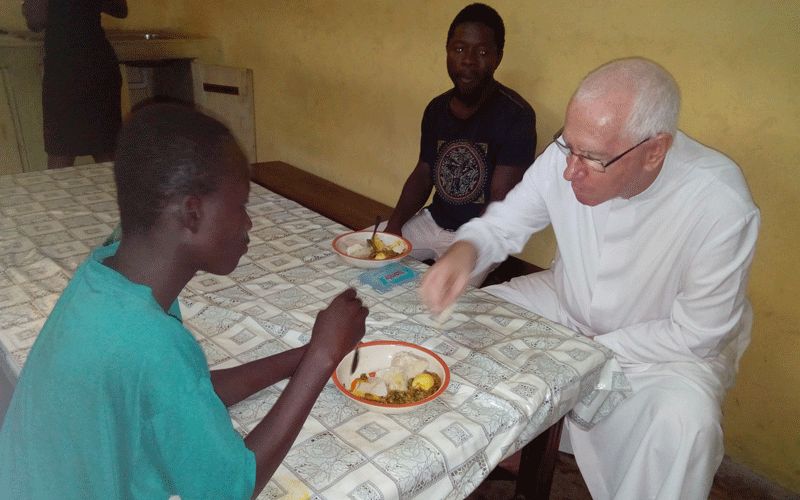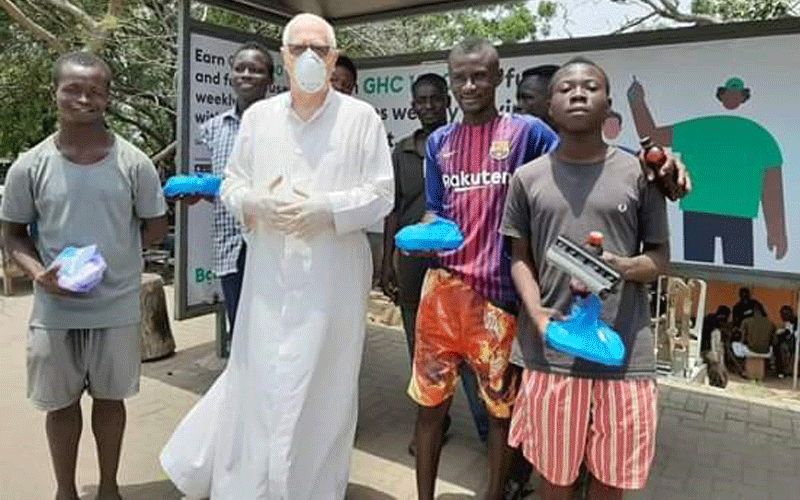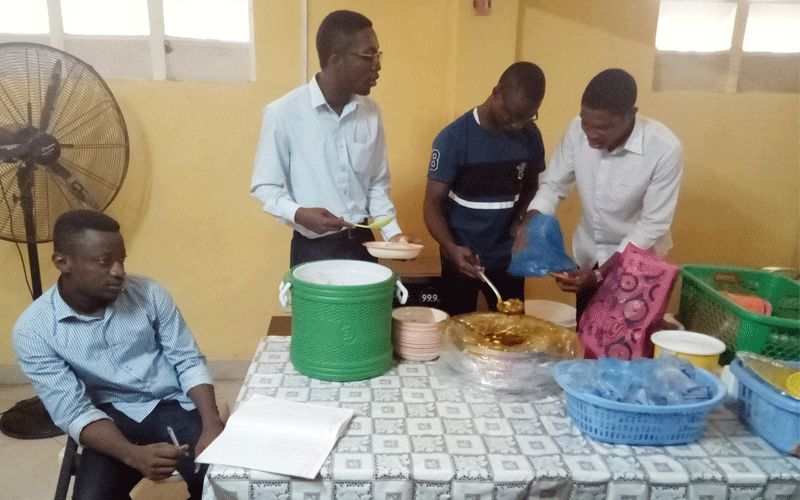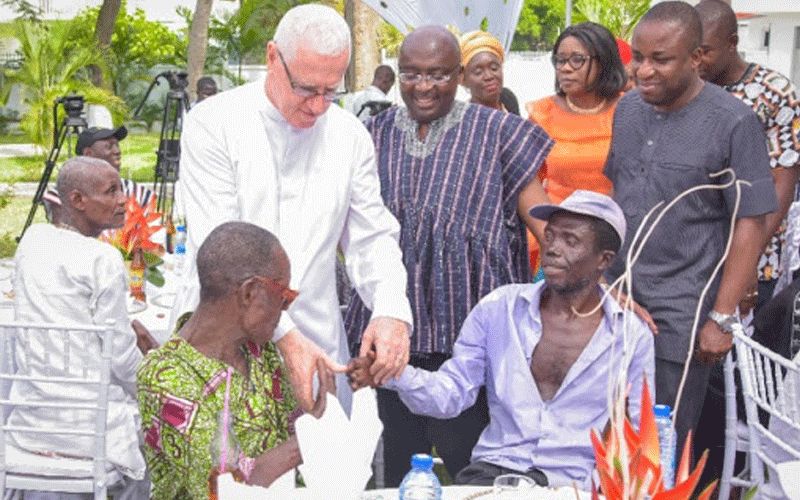Fr. Campbell, the Parish Priest of Christ the King Church who has lived in Ghana since 1971 has been honored as a less-celebrated person who has touched lives of the most underprivileged members of society including the poor, the sick and victims of societal discrimination.
A project, the Lepers Aid Committee (LAC), that the 74-year-old priest started in 1993 has been acclaimed for turning around lives of cured lepers in Ghana who are still shunned by society because of the scars they bear.
Christ the King Soup Kitchen was established in 2016 to provide support to the several beggars who visit the Christ the King church compound seeking help to buy food and other basic needs from parishioners.
About 300,000 persons currently live and work on the streets of Ghana, recent statistics from the Department of Social Welfare have indicated. The number represents more than twice the figure recorded in 2011, which stood at 60,495 and comprised migrant children, urban dwellers and adults among other smaller vulnerable groups.

(Story continues below)
61,492 Street Children were counted in a Census conducted between October 2007 and April 2011 on Street Children in the Greater Accra Region by the Department of Social Welfare to create a database on Street Children in the West African nation.
The data was aimed to aid in implementing relevant policies that were designed for effective service delivery among street families in the West African country.
In response, Fr. Campbell established the Kitchen Soup to alleviate the plight of the underprivileged, a gesture made possible after a unanimous affirmation among the Parish Pastoral Council and the Parish Priest.
The native of Ireland says that his most fulfilling goal as a Priest, guided by Pope Francis’s declaration in 2016 as “The Jubilee Year of Mercy”, is to give hope and dignity to the destitute, marginalized and underprivileged in society.
“Being with the people without discrimination, encouraging them, bringing smiles, happiness and joy to them, is the mandate of every Christian including Priests. It has always been my desire to care for the poor and the needy,” he says.

The concept of Soup Kitchen was conceived in 2013 and suggested as a project for the SVD's 75th Anniversary in Ghana the same year. The project was officially launched on November 4, 2016 to give support to the poor and needy at Christ the King Church, its environs and also give food to the homeless.
Soup Kitchen is opened to the hungry every day from 7 a.m. to 9 a.m. Ghana time at the Parish while squatters under the Kanda Bridge in Accra are served with food three times a week.
According to the Parish Priest, hundreds of people are served with sumptuous and balanced meals every day. He says that since the inception of the project, over 20,000 people have been served and the number keeps increasing daily.
Some of the beneficiaries of the feeding program are drug addicts and school dropouts, according to the Priest who explains that many of the beneficiaries have received medical care through the support of the project.
Fr. Campbell has decried the social stigma people attach to the homeless, mentally challenged and street beggars, noting that some of the beneficiaries of the project have been united with their families while some are taught mathematics and English to enhance their educational skills.
The long-term goal of the project is to locate land in the Accra metropolis to put up a structure where social workers, doctors, nurses, paramedics and counsellors will visit periodically to support and guide those who need copying skills and reintegration into the society.

The SVD Priest derives inspiration from the works of St. Teresa of Calcutta who was passionate about the most underprivileged members of the society and Pope Francis’ words, “Sick and disabled people are precious treasures of the Church. They are a spiritual resource, an asset to every Christian Community. Do not be ashamed of being a precious treasure of the Church.”
Fr. Campbell expresses appreciation to parishioners of Christ the King, volunteers, non-Catholics and government officials who he says share in his vision and have been contributing to support the project to bring hope and meaningful life to the deprived in society.
Meanwhile, Ghana’s Vice President Dr. Mahamudu Bawumia, a benefactor to Soup Kitchen, during the 4th anniversary of the Soup Kitchen in January, called on Ghanaians to support the poor and the needy.
“If you use your wealth to help others, you will definitely get a reward,” said Dr. Buwumia.
Speaking at the 4th anniversary of Christ the King Soup Kitchen as the Special Guest of Honour on January 18, Dr. Bawumia appealed to those who are capable of supporting street children and the poor not to focus or use their wealth for material things only, but to reach out to others who are in need.
The Vice President also pledged to issue free National Health Insurance cards to 500 street children and to start the construction of an accommodation project for their training, feeding and upkeep.














